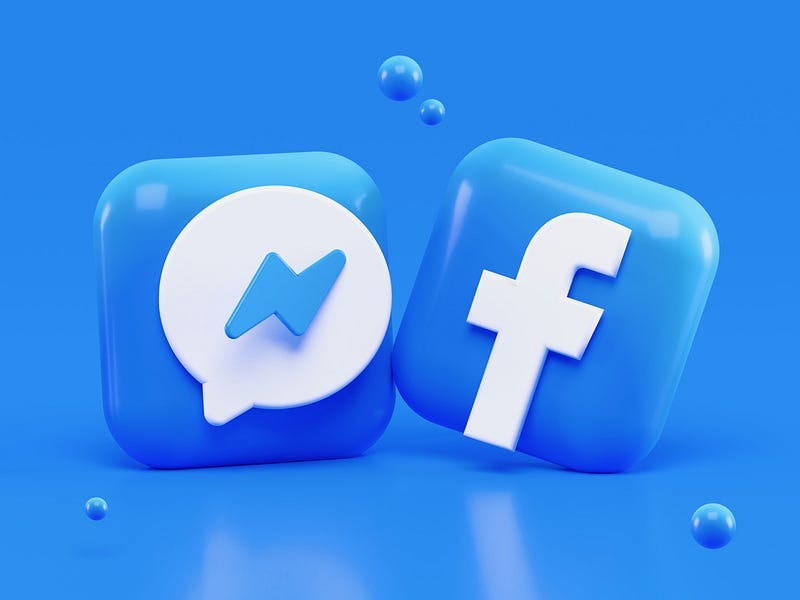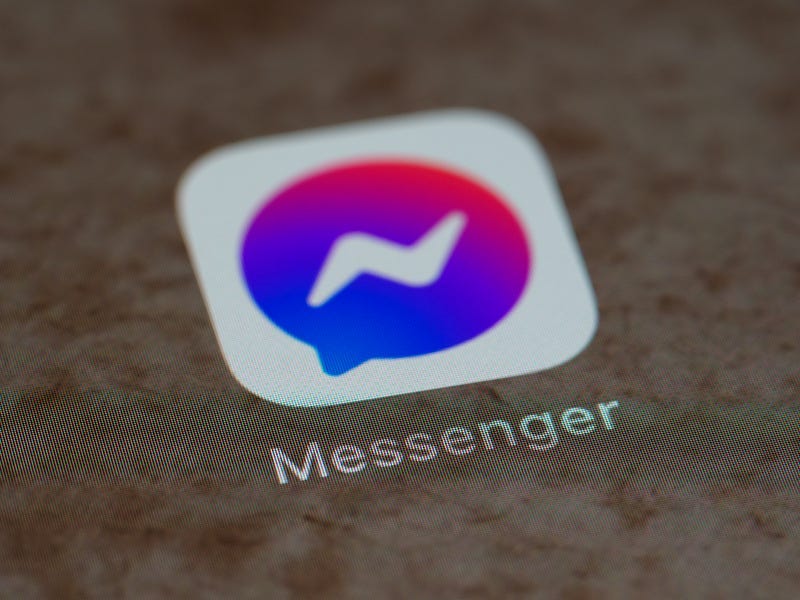
By: Mack Jackson Jr.
In today’s interconnected world, social media platforms have become a primary mode of communication for billions of people worldwide. Facebook Messenger has become a popular instant messaging choice with its extensive user base. However, this widespread usage has also attracted the attention of hackers seeking to exploit vulnerabilities and steal users’ Facebook Messenger accounts. Understanding this threat is crucial for users to protect their personal information and maintain online privacy.
Facebook users often fall victim to hackers through the Messenger app due to various vulnerabilities. Hackers employ tactics like phishing, where users are tricked into revealing their login credentials through deceptive messages or websites. Weak passwords or reusing passwords across platforms make it easier for hackers to gain unauthorized access. Additionally, hackers exploit software vulnerabilities to compromise user accounts. Once hacked, attackers can access private messages and personal information and even impersonate the user. Users need to understand these risks, stay vigilant against phishing attempts, and implement robust security measures to protect their Facebook Messenger accounts from being compromised.
As a cybersecurity expert, I’ve witnessed cleverly hidden threats in our digital networks. Cybercriminals often exploit Messenger, forming seemingly genuine relationships to manipulate users into fake Bitcoin or romance scams. They transition the dialog to platforms like WhatsApp, leveraging established trust to coerce victims into anonymous, untraceable cryptocurrency transactions. This scam highlights the importance of vigilant skepticism towards new digital connections, especially those prompting secretive financial discussions. Remember: when online, always exercise caution; if it seems too good to be true, it likely is.
Another approach is through the exploitation of software vulnerabilities. Hackers exploit weaknesses in devices, operating systems, or outdated applications to gain unauthorized access to user accounts. Additionally, weak passwords or the reuse of passwords across multiple platforms make it easier for hackers to compromise accounts.
Once hackers gain control of a Facebook Messenger account, they can access private messages, personal information, and even impersonate the account owner. This attack can lead to identity theft, fraud, or spreading of malicious content.
To protect against these threats, users must be aware of the risks and implement robust security measures. This awareness includes using strong, unique passwords, enabling two-factor authentication, being cautious of phishing attempts, regularly updating devices and applications, and monitoring account activity for suspicious behavior.
By understanding the methods employed by hackers and taking proactive steps to safeguard their Facebook Messenger accounts, users can mitigate the risk of falling victim to these malicious activities and maintain control over their online presence and personal data. This article provides research-backed tips and strategies to defend yourself from hacking attempts on your Facebook Messenger account.

Use a solid and unique password:
Creating a strong and unique password is fundamental to safeguarding any online account, including Facebook Messenger. A strong password should be lengthy, comprising a combination of upper and lowercase letters, numbers, and special characters. I recommend using a passphrase instead of a password. Avoid using easily guessable information, such as your name, birth date, or simple dictionary words. Additionally, refrain from reusing passwords across different platforms.
Enable two-factor authentication (2FA):
Two-factor authentication is an effective security measure that adds an extra layer of protection to your account. You require a secondary verification code and password when enabling 2FA on your Facebook Messenger account when logging in. This code is usually sent to your mobile device, making it significantly harder for hackers to gain unauthorized access even if they obtain your password.
Beware of phishing attempts:
Phishing is a standard tactic hackers use to deceive users into revealing their login credentials. Stay vigilant and be cautious of suspicious emails, messages, or links claiming to be from Facebook or related entities. Legitimate companies and organizations will never ask you to provide your password or sensitive information via email or direct message. Always verify the authenticity of such requests by contacting the official support channels independently.
Keep your devices and apps up to date:
Software vulnerabilities can provide hackers with entry points to exploit. Regularly updating your operating system, web browser, and Facebook Messenger app ensures you have installed the latest security patches and bug fixes. These updates often address known vulnerabilities and strengthen the overall security of your devices and applications.
Exercise caution with third-party apps:
When granting access to third-party applications through your Facebook account, exercise caution and only authorize trusted apps. Some apps may request access to your Facebook Messenger account, potentially compromising your privacy. Review the permissions requested by each app and be cautious of granting unnecessary access. Regularly review the list of authorized apps and revoke access to any you no longer use or trust.
Secure your device:
Securing your devices with strong passwords, biometric authentication, and encryption adds additional protection against unauthorized access. Install reputable antivirus and anti-malware software on your devices and regularly scan for potential threats. Furthermore, be cautious when connecting to public Wi-Fi networks, as they can be vulnerable to eavesdropping attacks.
Monitor your account activity:
Regularly monitor your Facebook account’s login history and active sessions. Facebook provides a feature that allows you to review recent login activity, including device type, location, and date/time. If you notice any suspicious login activity, such as unrecognized devices or unfamiliar places, immediately log out of those sessions, change your password, and report the issue to Facebook.
Educate yourself about social engineering:
Hackers often employ social engineering techniques to manipulate individuals into revealing their login credentials or other sensitive information. Educate yourself about common social engineering tactics, such as phishing, pretexting, and baiting. Be skeptical of unsolicited messages or requests that seem unusual or out of character.
Report suspicious activity:
If you believe your Facebook Messenger account has been compromised or notice any suspicious activity, promptly report the issue to Facebook’s support team. They have dedicated resources to assist users in recovering their accounts and can provide further guidance on securing your account and protecting your privacy.
Regularly review and update your privacy settings:
Facebook Messenger offers various privacy settings that allow you to control who can contact you, see your profile information, and access your messages. Take the time to review and adjust these settings according to your preferences. Ensure that only trusted contacts have access to your personal information and limit the visibility of your account to minimize the risk of unauthorized access.
Be cautious of public Wi-Fi networks:
Public Wi-Fi networks, such as those found in cafes, airports, or hotels, are often unsecured and can pose significant risks to your online security. Avoid accessing your Facebook Messenger account or other sensitive information when connected to such networks. If you must use public Wi-Fi, consider using a virtual private network (VPN) to encrypt your internet connection and protect your data.
Be skeptical of messages and links:
Exercise caution when receiving messages or clicking on links within Facebook Messenger, especially if they appear suspicious or unexpected. Hackers may trick you into visiting malicious websites or downloading malware-infected files. Be vigilant and avoid clicking on unfamiliar links or providing personal information unless you can verify the source’s legitimacy.
Protecting your Facebook Messenger account from hacking attempts requires a proactive approach to online security. By implementing strong passwords, enabling two-factor authentication, being cautious of phishing attempts, keeping your devices and apps up to date, and monitoring your account activity, you can significantly reduce the risk of unauthorized access and safeguard your privacy. Additionally, staying informed about social engineering tactics, reporting suspicious activity, regularly reviewing privacy settings, and exercising caution on public Wi-Fi networks contribute to a comprehensive defense against hacking attempts. Remember, prioritizing your online security is essential to maintaining control over your personal information and protecting yourself from cyber threats.
About the Author — Mack Jackson Jr
Mack Jackson Jr. is the CEO of Vanderson Cyber Group. In the age of global cyber threats, Vanderson Cyber Group helps businesses protect themselves from cyberattacks by teaching them cybersecurity awareness. Vanderson Cyber Group uses state-of-the-art practices in security policy development and comprehensive employee training. One of the essential services is phishing simulation and compliance training, which keep employees up-to-date on the threat landscape. Vanderson Cyber Group also provides resources for cyber insurance, managed services, and legal representation. For more information: http://www.vandersoncybergroup.com



